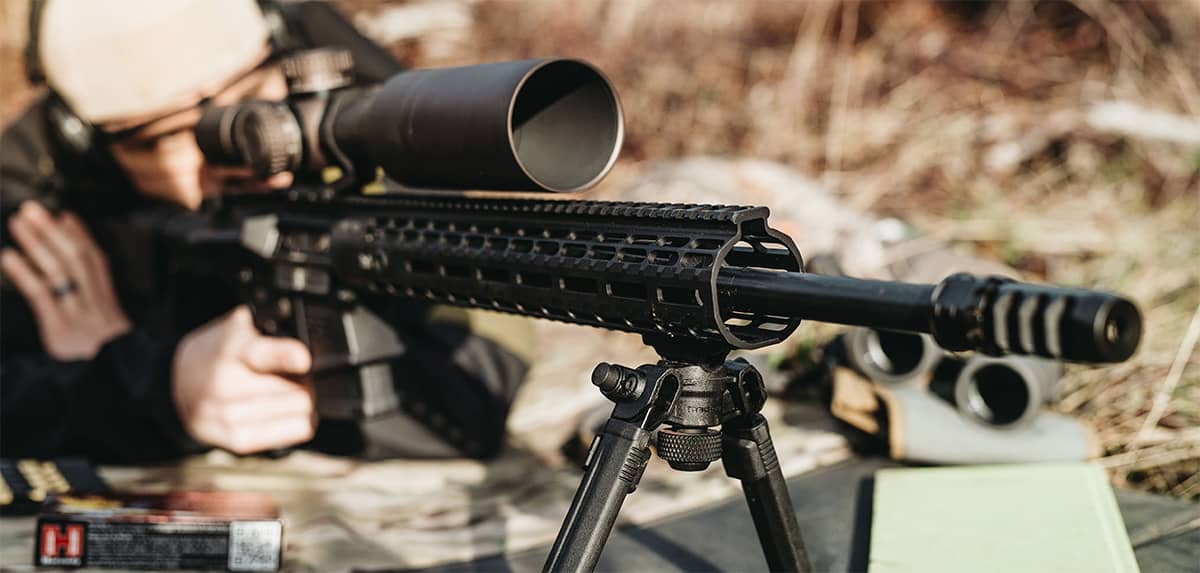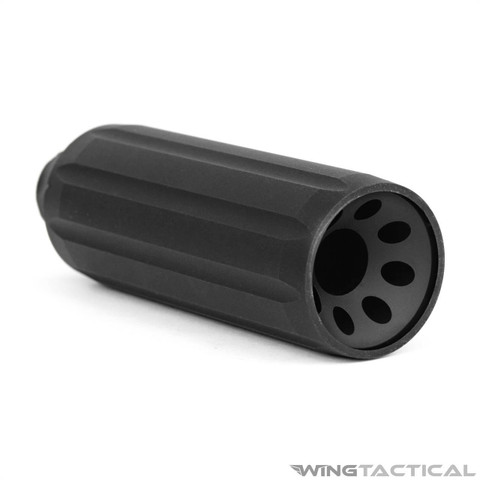Taking a long-distance shot requires rock-solid stability. Any slight wiggle or shift, and you might as well be shooting blind. This is where the bipod steps up. For a shooter intent on hitting their mark, the bipod isn’t just another accessory; it’s a game-changer. When you're posted up and dialed in, this simple tool can be the difference between a successful shot and a missed opportunity. It's all about getting that stable foundation to let your rifle do its job. For those who take their shots seriously, a good bipod isn't a luxury—it's a must.

What To Look for When Buying a Bipod?
Purpose
The first thing to consider when buying a bipod is its purpose. Depending on the type of shooting you intend to do and your rifle, different bipods may be more suitable for you. For instance, if you are going to be shooting from a prone position, with the bipod resting on the ground, you'll want something with solid spike feet. Suppose you want a lightweight bipod for a rifle that you use for both quick and long to medium range shooting. In that case, you can get bipod fore grips, which offer excellent stability when moving around and firing from a stationary position.
Materials
You should ensure that the bipod you get is made from sturdy materials. Mostly, bipods are made of aluminum, steel, or in some cases, a polymer. Depending on the materials used in their construction, the weight, price, and functionality of bipods can be different.
Adjustable Leg Length
You should look for a bipod that allows you to easily adjust the length of the bipod legs so that you can use it on uneven terrain and keep your rifle stable.
Mounting System
Most bipods mount onto rifles using a Picatinny rail or M-LOK slots.
Frequently Asked Questions
What is the primary purpose of a bipod?
When you're lining up for a long-range shot or digging in for the long haul, a bipod becomes indispensable. It steadies your rifle, minimizing any tremors or shifts, and ensures your shots are on target. Additionally, it eases the burden on your arms, allowing you to concentrate solely on nailing that perfect shot. In essence, a bipod is an ace up a shooter's sleeve that elevates decent shots to pinpoint precision.
How do I choose the right height for my bipod?
The ideal height depends on your shooting position and terrain. For prone shooting, a lower height is often suitable, while for bench or seated shooting, a taller bipod might be required.
Are all bipods universally compatible with rifles?
No, compatibility depends on the rifle's mounting options. Some rifles have built-in bipod studs, while others may require Picatinny or M-Lok adapters.
Can I use a bipod on uneven terrain?
Yes, many bipods have adjustable legs and can pivot or cant, allowing shooters to level their rifles on uneven surfaces.
Are there legal restrictions for using a bipod in hunting?
In most places, using a bipod is legal for hunting. However, always check local regulations and game laws to ensure compliance.
Do bipods affect the accuracy or velocity of the bullet?
While a bipod itself doesn't directly affect bullet velocity, it can enhance accuracy by providing a stable shooting platform, reducing rifle movement, and improving shot consistency.






